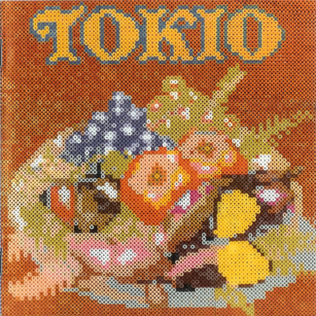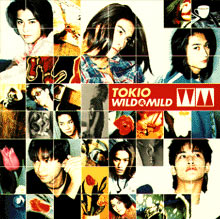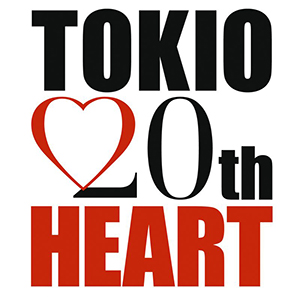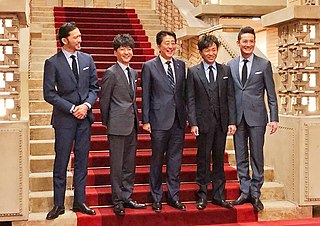
Sugar is the eleventh studio album by Japanese band Tokio. It was released on February 20, 2008. The album peaked at sixth place on the Oricon weekly charts and charted for six weeks.

Lullaby Singer is the 34th studio album by Japanese singer-songwriter Miyuki Nakajima, released in November 2006.

Act II is the ninth studio album by Japanese band Tokio. It was released on February 2, 2005. The album reached third place on the Oricon weekly chart and charted for seven weeks.

Harvest is the tenth studio album by Japanese band Tokio, released on October 18, 2006. It is one of Tokio's most successful albums, having peaked at second place on the Oricon weekly charts and charted for eighteen weeks.
The discography of Tokio, a Japanese rock/pop band, consists of twelve studio albums, one cover album, one remix album, three compilation albums, one mini album, and more than fifty singles released under Sony Music Entertainment, Universal Music, and J-Storm.

TOK10 is a cover album by Japanese band Tokio, released on September 1, 2004. It was released to commemorate the tenth anniversary of the band's debut. The album peaked at first place on the Oricon weekly chart and charted for twelve weeks. Thus far, it is their only album to top the Oricon charts.

Glider is the eighth studio album by Japanese band Tokio. It was released on February 19, 2003. The album reached fifth place on the Oricon weekly chart and charted for six weeks.

Yesterday & Today is the sixth studio album by Japanese band Tokio. It was released on February 2, 2000. It was the last album by Tokio to be released under Sony Music Entertainment. The album reached ninth place on the Oricon weekly chart and charted for three weeks.

Graffiti is the fifth studio album by Japanese band Tokio. It was released on April 1, 1998. The album reached ninth place on the Oricon weekly chart and charted for three weeks.

Best EP Selection of Tokio II is the second compilation album by Japanese band Tokio. It was released on May 9, 2001. It is the band's second of three compilation albums, with the first being, Best E.P Selection of Tokio. It reached sixth place on the Oricon weekly chart and charted for nine weeks.

Wild & Mild is the fourth studio album by Japanese band Tokio. It was released on March 26, 1997. The album reached ninth place on the Oricon weekly chart and charted for four weeks.

Best E.P Selection of Tokio is the first compilation album by Japanese band Tokio. It was released on March 26, 1997. The album reached fourth place on the Oricon weekly chart and charted for five weeks.

Blowing is the third studio album by Japanese band Tokio. It was released on March 25, 1996. The album reached seventh place on the Oricon weekly chart and charted for six weeks.

Bad Boys Bound is the second studio album by Japanese band Tokio. It was released on July 3, 1995. The album reached fourth place on the Oricon weekly chart and charted for four weeks.

Tokio is the debut eponymous album by Japanese band Tokio. It was released on November 21, 1994. It reached eighth place on the Oricon weekly chart and charted for thirteen weeks.
Tokio Remix is the first remix album by Japanese band Tokio. It was released on March 8, 1995. The album reached ninth place on the Oricon weekly chart and charted for five weeks.
"Love You Only" is the debut single by the Japanese band Tokio and was released on September 21, 1994. It reached third place on the Oricon weekly charts, and charted for 22 weeks. It was also the 3rd opening theme song to the anime "Tsuyoshi! Shikkari Shinasai!" In addition to being included in the album Tokio, it was remixed for the album TOK10.

17 is the twelfth studio album by Japanese band Tokio. It was released on 22 August 2012. The album peaked at fifth place on the Oricon weekly charts, and remained in the charts for five weeks.

Heart is the third greatest hits album by Japanese band Tokio. It was released on July 16, 2014, through J Storm. The album debuted atop the Oricon Albums Chart, selling 41,000 copies. It became Tokio's second number-one album in Japan and first number-one album since TOK10 (2004). The album was preceded by the lead single "Lyric", which reached number seven on the Oricon Singles Chart. In September 2014, the band embarked on an anniversary tour called Tokio 20th Anniversary Live Tour Heart.

















